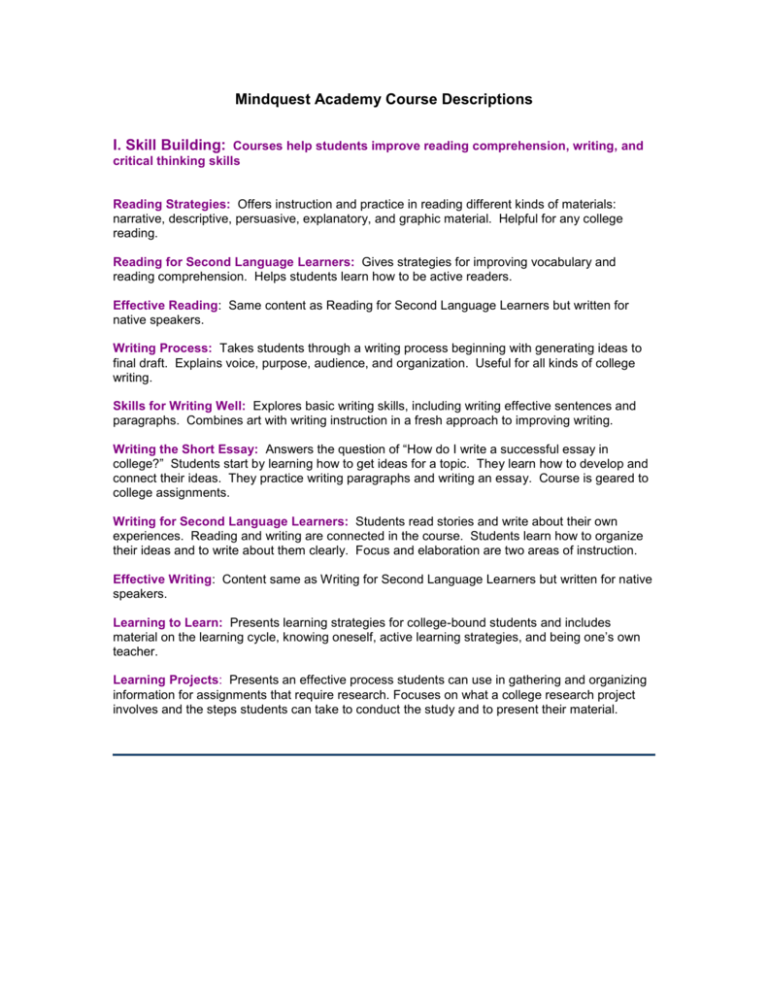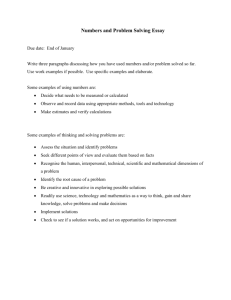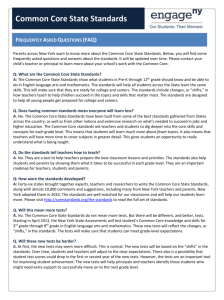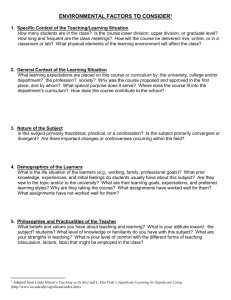Mindquest Academy Courses
advertisement

Mindquest Academy Course Descriptions I. Skill Building: Courses help students improve reading comprehension, writing, and critical thinking skills Reading Strategies: Offers instruction and practice in reading different kinds of materials: narrative, descriptive, persuasive, explanatory, and graphic material. Helpful for any college reading. Reading for Second Language Learners: Gives strategies for improving vocabulary and reading comprehension. Helps students learn how to be active readers. Effective Reading: Same content as Reading for Second Language Learners but written for native speakers. Writing Process: Takes students through a writing process beginning with generating ideas to final draft. Explains voice, purpose, audience, and organization. Useful for all kinds of college writing. Skills for Writing Well: Explores basic writing skills, including writing effective sentences and paragraphs. Combines art with writing instruction in a fresh approach to improving writing. Writing the Short Essay: Answers the question of “How do I write a successful essay in college?” Students start by learning how to get ideas for a topic. They learn how to develop and connect their ideas. They practice writing paragraphs and writing an essay. Course is geared to college assignments. Writing for Second Language Learners: Students read stories and write about their own experiences. Reading and writing are connected in the course. Students learn how to organize their ideas and to write about them clearly. Focus and elaboration are two areas of instruction. Effective Writing: Content same as Writing for Second Language Learners but written for native speakers. Learning to Learn: Presents learning strategies for college-bound students and includes material on the learning cycle, knowing oneself, active learning strategies, and being one’s own teacher. Learning Projects: Presents an effective process students can use in gathering and organizing information for assignments that require research. Focuses on what a college research project involves and the steps students can take to conduct the study and to present their material. II. Academic Samplers: Courses show students what to expect from a college course in a general subject area. They introduce students to various fields in science, social studies, literature, and mathematics. Students become acquainted with key questions that shape the field and with some current issues. Readings and assignments relate directly to college work. Plus, students improve reading, writing, and critical thinking skills while learning about a subject area. Anthropology: Describes the major areas of study in anthropology and the questions anthropologists ask, how they carry out research, and important issues that anthropologists are working with today, such as environmental change, AIDS in Africa, and immigration. Biology: Introduces students to the broad field of biology, gives examples of ways biology is taught in college, describes the development of biological research, and highlights genetic advances in the world today. Illustrates the contributions of scientists such as Pasteur, Jenner, Mendel, and modern geneticists. Ecology: Introduces students to basic concepts in the science of ecology, including connections between and among systems, change, biodiversity, balance, energy flow, and recycling. Illustrates the work of several ecologists. Applies principles to prominent environmental issues such as climate warming, pollution, loss of biodiversity and deforestation. Economics: Describes basic economic concepts such as the law of supply and demand, exchange, markets, and competition. Delves into some current economic issues, including the economics of poverty. Shows that economics can shed light on deeply human concerns like making a living, governing a society, and working toward some kind of justice. History: Looks at how academics define history, the role of historians in shaping our thinking, the process historians use in creating histories, important issues in history today and how they affect our pictures of the past. Literature: Introduces students to literary elements and demonstrates each through various short stories. Shows how literature is about the conflicts, aspirations, and problems that human beings face in their lives. Presents overview of major periods in literature, from classical to postmodern literature. Discusses and presents examples of multicultural writing: Native American, African American, Asian American, and Hispanic/Latino. Mathematics: Gives students a new way of thinking about mathematics and widens their view of what mathematics is. This is not a course in how to do arithmetic, algebra or geometry, but is instead an answer to common questions such as “What is mathematics all about?” and “How is mathematics central to our lives today?” Topics include dealing with math anxiety and understanding large numbers. Psychology: Presents an overview of the broad field of psychology. Describes studies in how we learn from classic experiments in conditioned learning to behaviorism and other theories that focus more on mental processing and thinking. Explores issues such as the brain and memory and how our personality changes as we grow older. Public Health: Describes how the field of public health has changed over the last century and a half. Explores directions this area of study is pursuing and shows how interwoven public health issues are in our daily lives. Students have a chance to learn some of the science and math that is basic to public health. This course would be particularly helpful to any student who plans on going into a field related to medicine or health. III. College Success Courses: Motivation, time-management, improving memory are examples of topics pursued in this set of courses. The emphasis here is on learning to be a successful college student. College Planning: Orients students to the Academy and to college preparation. It’s shorter than the other courses and is intended to be an introduction to a college prep learning plan. Students will find answers to many questions about college that they may have. They can take the College Placement Tests and build a learning plan. Academic Skills: Instructs and provides practice for students in basic college skills Such as listening, note-taking, improving memory, and taking tests. Managing College Success: Explores personal success strategies for college, such as planning study time, setting goals, building motivation, dealing with procrastination, and improving health and wellness. Study Reading: Examines techniques for reading college materials, including building vocabulary, previewing textbook material, using active reading strategies, and rehearsal techniques. IV. Career Development: Courses draw on a variety of Internet resources to help students assess their interests and goals, explore career choices, and look at options for working while going to college. Career Exploration: students research three careers of interest; explore the arena of work by reading excerpts from Studs Terkel’s book Working; assess their interests, personality and learning styles; and develop their career vision, goals, and action plan. Working in College: Students explore jobs that could meet their needs as college students, design a job search plan, and learn about resume writing and job applications.





